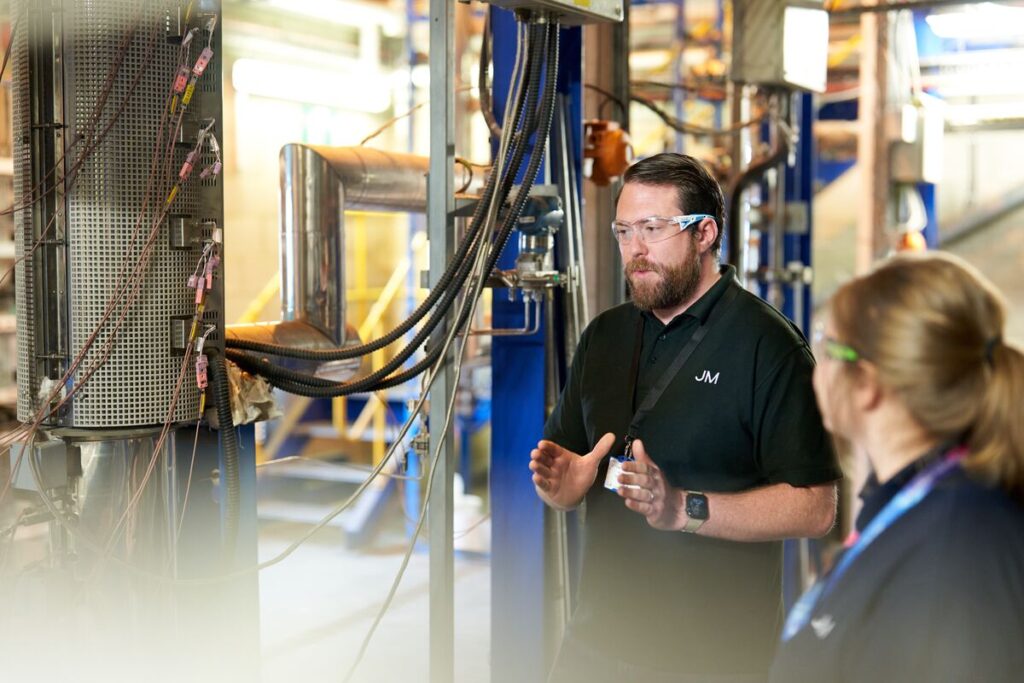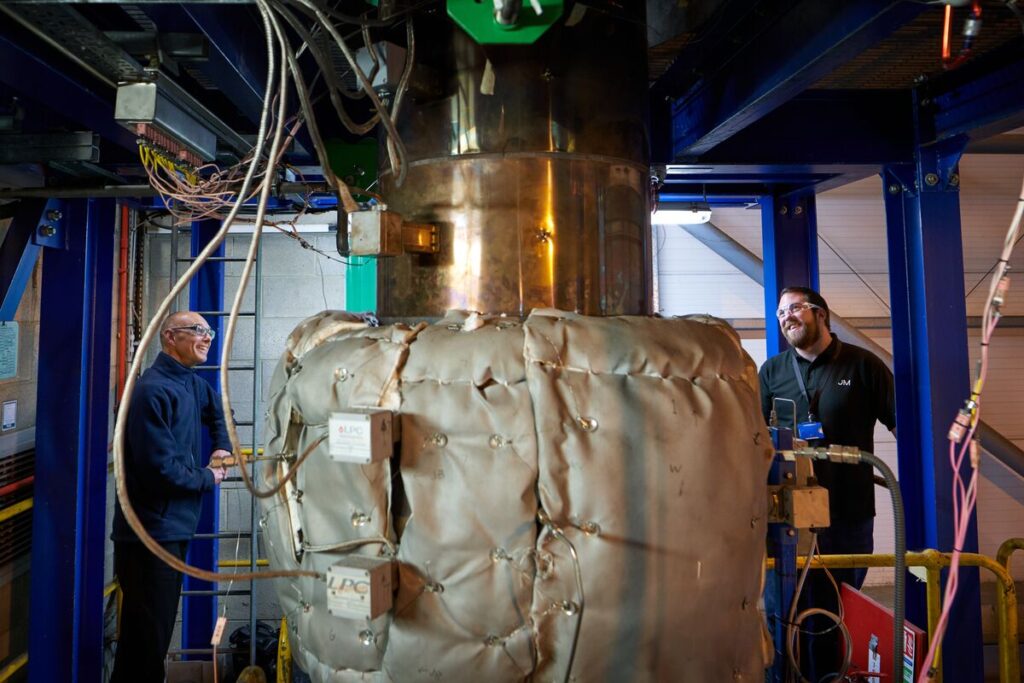
Adrian Cawtherley, Learning & Development Specialist (Competency Based) at Johnson Matthey, is a strong advocate for the role of education in shaping the future workforce.
Having spent eight years at Burnley College as a Work-Based Training Coordinator, Adrian has witnessed firsthand the evolution of technical education and the significant investments being made to keep up with industry advancements.
Prior to working at Burnley College, he spent 22 years in the Engineering and Manufacturing industry.
“Burnley College has heavily invested in cutting-edge equipment, not just to support regional development but to ensure that learners are equipped with the latest technology,” says Adrian. “The chemical manufacturing industry is constantly evolving, and it’s essential that education keeps pace. Colleges used to lag behind industry, but thanks to significant investment and effort, Burnley College is providing learners with top-tier opportunities to excel in their chosen fields.”
One of the standout aspects of Burnley College’s approach is its commitment to aligning training with industry needs. Adrian highlights the importance of providing students with access to advanced CNC machinery, similar to what would be used in real-world manufacturing settings.
He explained: “When you step into major manufacturing companies in Lancashire, you’ll find advanced multi-axis machines in operation. If students are only trained on three-axis machines, they’ll be at a disadvantage when entering the workforce. Burnley College has made significant investments in CNC machinery, ensuring that students are ready to step into high-tech roles with confidence.”
This philosophy extends beyond mechanical engineering. Adrian notes that Burnley College has also made extensive investments in its electrical training facilities, and all skills areas in engineering including welding and fabrications with new ESAB welding equipment and additive manufacturing with 3D printers including a metal printer, ensuring that students receive top-tier education that exceeds standard requirements.
Adrian believes that success stories are a testament to the effectiveness of a learning institution. One such success is Igor Dolgan, a Burnley College apprentice who has competed in the prestigious WorldSkills Competition, showcasing his exceptional talent and dedication.
Adrian said: “Igor’s commitment to learning and achieving his goals sets him apart. He’s one in a million.
“While learners play a key role in their own success, they also need employer support. At Johnson Matthey, we ensure that apprentices are engaged and exposed to a variety of tasks throughout their training. This keeps them motivated and fully immersed in their career development.”
Igor’s training for the WorldSkills competition involved extensive use of IoT equipment, further emphasising the importance of having access to industry-standard facilities.

Adrian underscores the significance of collaboration between employers and educational institutions, particularly in curriculum development. The Lancashire and Cumbria Institute of Technology (IoT) is playing a crucial role in this by co-creating curricula with employers to ensure training aligns with industry needs.
“We attended an employer forum event where we were able to provide feedback on what the college was doing well and where improvements could be made,” Adrian recalls. “Burnley College took our suggestions on board and implemented them into their curriculum. This kind of proactive engagement ensures that courses remain relevant and valuable to both students and businesses.”
Beyond direct collaboration with colleges, Adrian is also involved in national discussions about skills development. In November, he attended a Westminster event as part of the Enginuity Alliance, a charity dedicated to closing skills gaps in UK engineering and manufacturing.
“Industry and education need to work together to address skills shortages. At Johnson Matthey, we employ professionals across multiple disciplines, including electrical and mechanical maintenance, design engineering, analytical services, and process operations. The demand for skilled workers is immense, and without proper training pathways, we risk a shortfall.”
One critical issue Adrian highlights is the lack of apprenticeship placements and employer engagement. “Some businesses take on apprentices simply to use their apprenticeship levy but don’t provide the necessary support or mentoring. Others hesitate to invest in apprentices at all. We need more employers to meet colleges halfway and establish true partnerships.”
Adrian believes that effective training requires both up-to-date knowledge and industry experience. “Tutors need a mix of real-world experience and technical expertise. If instructors aren’t familiar with the latest industry developments, how can they prepare students effectively?”
Furthermore, he stresses the importance of aligning training equipment with industry standards. “There’s no point in teaching students using outdated tools. Colleges must have the right equipment to provide meaningful, career-ready training. Burnley College understands this, which is why they continuously invest in state-of-the-art facilities.”
For Adrian, the ultimate goal is to create a seamless link between education and industry, ensuring that learners have access to high-quality training, and businesses receive well-prepared employees. “Good training and facilities lead to better job opportunities for learners and stronger workforces for businesses like ours. At Johnson Matthey, we are committed to nurturing talent and ensuring apprentices achieve their full potential.”
With leaders like Adrian advocating for collaboration and continuous improvement, and institutions like Burnley College and the IoT investing in future-ready education, the region is well on its way to producing a skilled, adaptable workforce ready to meet the demands of modern industry.